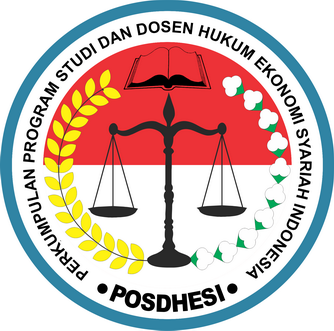| SUBMIT |
| EDITORIAL BOARD |
| REVIEWERS |
| AUTHOR GUIDELINES |
| FOCUS AND SCOPE |
| PUBLICATION ETHICS |
| REFERENCES |
| JOURNAL HISTORY |
| PUBLICATION FEES |
Publication Ethics
PUBLICATION ETHICS
Ethical Guidelines for Journal Publication
The publication of an article in a peer-reviewed journal like the Journal of Islamic Law plays a vital role in building a coherent and reputable knowledge network. It serves as a direct reflection of the quality of the authors’ work and the institutions supporting them. Peer-reviewed articles uphold and embody the scientific method. Therefore, it is crucial to establish standards of expected ethical behavior for all parties involved in the publishing process: authors, journal editors, peer reviewers, publishers, and society.
The Institut Agama Islam Negeri (IAIN) Pontianak, as the publisher of the Journal of Islamic Law, takes its role as guardian of the publication process seriously and acknowledges its ethical responsibilities. We are committed to ensuring that advertising, reprints, or other commercial interests have no impact or influence on editorial decisions.
The authors’ submissions imply that the manuscript has not been previously published in any language, either in full or in part, and is not currently under consideration for publication elsewhere. Editors, authors, and reviewers within the Journal of Islamic Law are fully committed to upholding good publication practices and accept the responsibility for the following duties and responsibilities, as outlined by the COPE Code of Conduct for Journal Editors. As part of the Core Practices, COPE provides guidelines available at http://publicationethics.org/resources/guidelines.
Publication Decisions
The editor of the Journal of Islamic Law is responsible for determining which submitted articles should be published. This decision should always be guided by the work’s validity and its significance to researchers and readers. Editors may refer to the policies of the journal’s editorial board and must adhere to legal requirements regarding libel, copyright infringement, and plagiarism. Editors may also consult with other editors or reviewers when making this decision.
Fair Play
Editors should evaluate manuscripts based on their intellectual content, without regard to the authors’ race, gender, sexual orientation, religious beliefs, ethnic origin, citizenship, or political philosophy.
Confidentiality
Editors and editorial staff must not disclose any information about a submitted manuscript to anyone other than the corresponding author, reviewers, potential reviewers, other editorial advisers, and the publisher, as necessary.
Disclosure and Conflicts of Interest
Editors should not use unpublished materials disclosed in a submitted manuscript for their own research without the express written consent of the author.
Duties of Reviewers
Contribution to Editorial Decisions
Peer review assists the editor in making editorial decisions and may also help authors improve their papers through editorial communications.
Promptness
Reviewers who feel unqualified to review a manuscript or are unable to complete the review promptly should inform the editor and excuse themselves from the review process.
Confidentiality
Manuscripts received for review must be treated as confidential documents and should not be shared or discussed with others except as authorized by the editor.
Standards of Objectivity
Reviews should be conducted objectively, and personal criticism of the author is inappropriate. Referees should express their views clearly, supported by arguments.
Acknowledgment of Sources
Reviewers should identify relevant published work that has not been cited by the authors. Any statement that an observation, derivation, or argument has been previously reported should be accompanied by the relevant citation. Reviewers should also alert the editor to any substantial similarity or overlap between the manuscript under consideration and any other published paper of which they have personal knowledge.
Disclosure and Conflict of Interest
Reviewers must keep privileged information obtained through peer review confidential and must not use it for personal advantage. Reviewers should not evaluate manuscripts in which they have conflicts of interest due to competitive, collaborative, or other relationships or connections with any of the authors, companies, or institutions connected to the papers.
Duties of Authors
Reporting Standards
Authors of original research reports should provide an accurate account of their work and an objective discussion of its significance. Underlying data should be accurately represented in the paper, and the paper should include sufficient detail and references to enable replication of the work. Fraudulent or knowingly inaccurate statements are unethical and unacceptable.
Originality and Plagiarism
Authors should ensure that they have written entirely original works and properly cite or quote the work or words of others when used.
Multiple, Redundant, or Concurrent Publication
Authors should not generally publish manuscripts describing essentially the same research in more than one journal or primary publication. Simultaneous submission of the same manuscript to multiple journals is unethical and unacceptable.
Acknowledgment of Sources
Authors must appropriately acknowledge the work of others and cite publications that have significantly influenced their work.
Authorship of the Paper
Authorship should be limited to those who have made a significant contribution to the conception, design, execution, or interpretation of the reported study. All significant contributors should be listed as co-authors. Those who have participated in specific substantive aspects of the research project should be acknowledged or listed as contributors. The corresponding author should ensure that all appropriate co-authors are included on the paper, with no inappropriate co-authors, and that all co-authors have reviewed and approved the final version of the paper and have agreed to its submission for publication.
Disclosure and Conflicts of Interest
Authors should disclose any financial or other substantive conflicts of interest that might be seen as influencing the results or interpretation of their manuscript. All sources of financial support for the project should be disclosed.
Fundamental Errors in Published Works
If an author discovers a significant error or inaccuracy in their published work, they have an obligation to promptly notify the journal editor or publisher and cooperate in retracting or correcting the paper.






